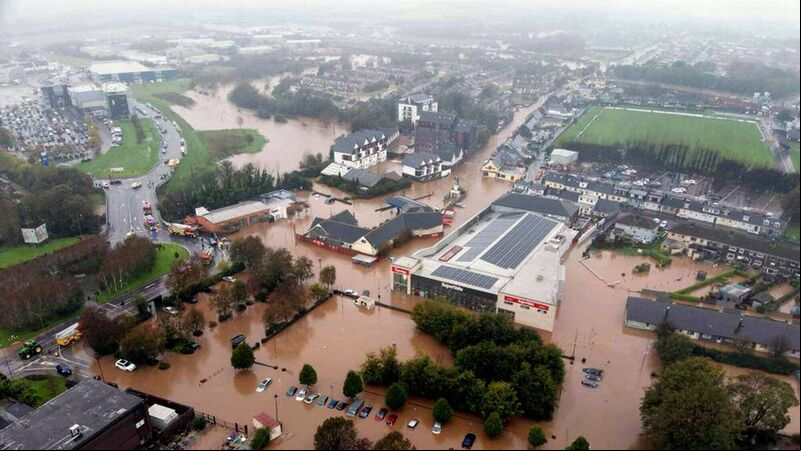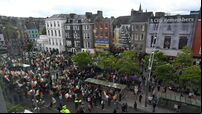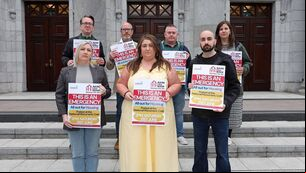'Blind luck' that catastrophe was avoided in east Cork during Storm Babet, says expert

The intense rainfall during the storm, which led to devastation in Midleton and other parts of east Cork, was more than twice as likely to happen due to global warming, the study carried out by international climate scientists has suggested. Picture: Guileen Coast Guard
It was ‘blind luck’ that catastrophe was avoided in Midleton and throughout east Cork during the flooding during Storm Babet.
That's according to one of the authors of a new study which found that global warming had increased the intensity of the extreme weather event which happened last October.
The intense rainfall during the storm, which led to devastation in Midleton and other parts of east Cork, was more than twice as likely to happen due to global warming, the study carried out by international climate scientists has suggested.
According to the study, which is to be highlighted on Prime Time on RTÉ 1 tonight, the chances of such heavy rainfall happening today were 120% more likely when comparing the current climate conditions to those which prevailed in pre-industrial times more than 200 years ago.
New scientific techniques pioneered by World Weather Attribution (WWA) were used which enable scientists to answer the question, following extreme weather events: ‘what is the role of climate change in this event’.
The study, a “climate attribution” analysis, which is the first of its kind in Ireland, was led by Dr. Ben Clarke, a scientist from the World Weather Attribution (WWA) team from Imperial College London working with researchers from the ICARUS Climate Research Centre at Maynooth University and Met Éireann.
One of the authors, Professor Peter Thorne from the ICARUS Climate Research Centre said it was ‘blind luck that we avoided a worse catastrophe in this case’.
He said that the storm could have yielded far more severe consequences had the storm coincided with a high tide rather than a low tide.
The research, which commenced in November following the storm's devastation, examined the impact of climate change on such an extreme weather event.
By employing attribution science, the team were able to establish a correlation between climate change and the heightened intensity of Storm Babet.
The hope of the authors’ is that they will prompt policymakers to take the necessary precautions.
“It's significant to understand, for any event, was it made more likely, more severe due to climate change?,” said Professor O’Shea. “Equally, was it made less likely, less severe due to climate change?
“If we're going to make sensible decisions, if we're really going to build a climate resilient island, we need to know the answers to these questions.”
A group representing Midleton and East Cork residents travelled to Dublin last week to deliver a petition with almost 15,000 signatures demanding urgent action to implement interim flood relief measures and describing as ‘not fit for purpose’ the humanitarian fund set up in the aftermath of the flooding to compensate householders and businesses who are unable to get flood insurance because of the absence of a flood relief scheme promised as long ago as 2010.
The RTÉ Prime Time programme will speak to some residents who air their concerns given the prediction of the new study that future climate events could be even more severe than Storm Babet.
RTÉ Prime Time will be broadcast at 9:35pm on RTÉ One and RTÉ Player.







 App?
App?


